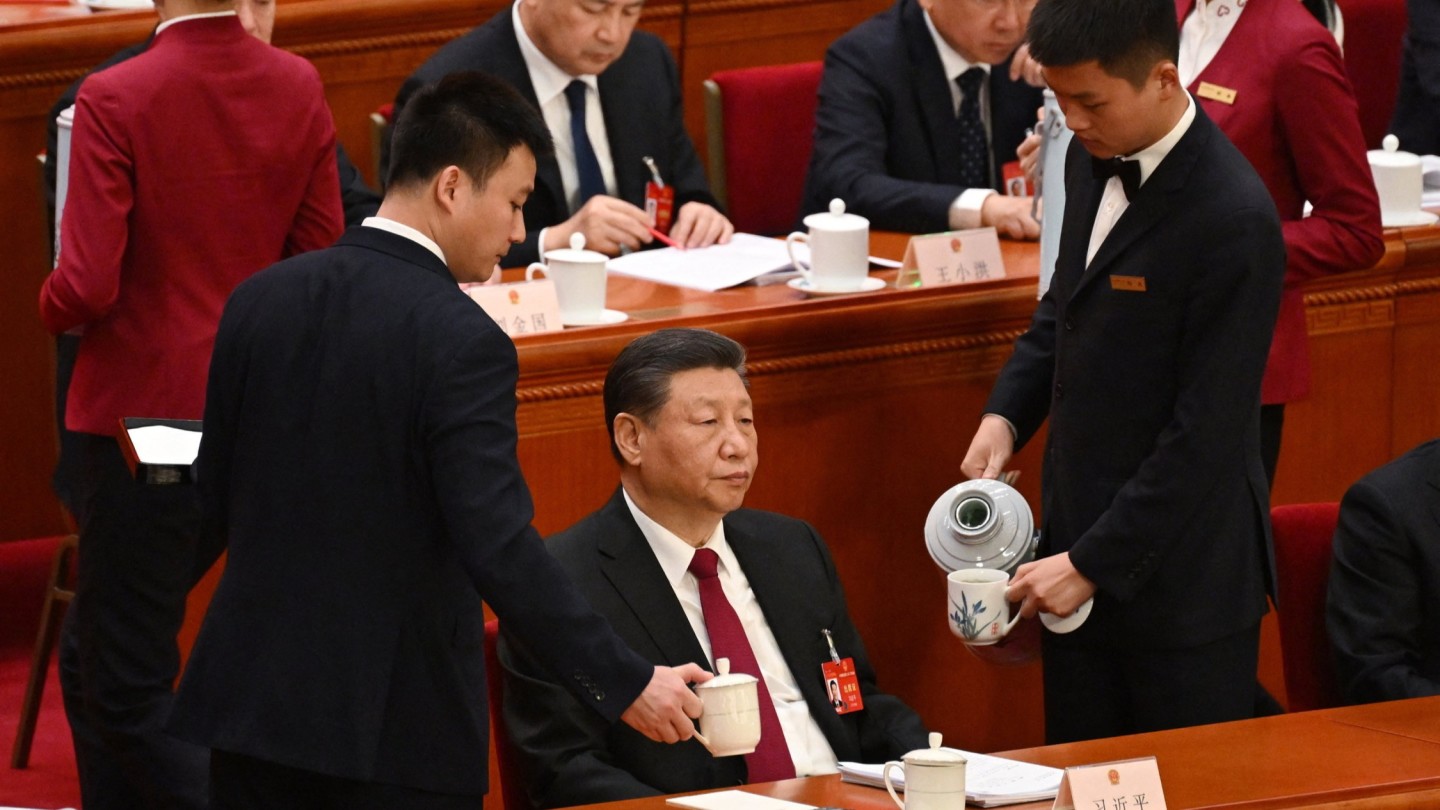‘No one is number 2’: Xi Jinping looms larger than ever over China

Simply sign up to the Chinese politics & policy myFT Digest -- delivered directly to your inbox.
In most countries, the cancellation of a press conference would barely warrant a murmur.
But the sudden announcement last week that China’s premier would no longer hold a customary media briefing at the annual gathering of the country’s rubber-stamp parliament has captivated political watchers of the week-long session, which ends on Monday.
The press conference at the conclusion of the National People’s Congress was the only time each year the man in charge of the world’s second-biggest economy took questions from global and domestic media. It also served as a rare public platform for China’s number-two official.
Alongside a legal revision further enshrining the ruling Communist party’s control over the State Council, the government cabinet headed by the premier, the briefing’s cancellation pointed to increasing opacity and centralisation of power under Xi Jinping, China’s most powerful leader since Mao Zedong.
“Zhongnanhai has always been a black box and now it’s just even more so,” said Chong Ja Ian, associate professor of political science at the National University of Singapore, referring to the former imperial garden, located next to the Forbidden City in Beijing, where top party leaders are based. “It makes trying to invest and make longer-term decisions about China even more difficult.”
At the NPC’s opening session in the main auditorium of the Great Hall of the People in Beijing on Tuesday, thousands of delegates clapped in slow unison as Xi and his top cadres filed on to the podium and a military brass band blared out the “March of the Volunteers”, the national anthem.
The only sound thereafter was the synchronised turning of pages as the delegates studiously accompanied Premier Li Qiang’s reading of the 31-page “work report” detailing his government’s economic targets for the year.

Apart from rubber-stamping the Communist party’s preset agenda, the event is also intended to demonstrate social and ethnic harmony. Delegates from China’s further-flung provinces who attend the “two sessions” gatherings of the NPC and the Chinese People’s Political Consultative Conference — an affiliated “united front” advisory body — often dress in traditional outfits and rarely venture off script.
“I’m very excited,” said a Tajik CPPCC delegate, an actor from north-western Xinjiang region, where human rights groups estimate as many as 1mn Uyghur and other members of mainly Muslim ethnic minorities have been detained over several years.
The entire event is carefully stage-managed. Officials read from prepared notes in press conferences, rarely giving impromptu answers. The premier’s press conference in past years was no exception, typically involving only pre-arranged questions.
This made its cancellation all the more surprising, analysts said.
Alicia García-Herrero, chief Asia-Pacific economist at Natixis, said Li’s failure to appear before the media would further dent investor confidence in China’s economy, following the tightening of access to official and private sector data over recent years.
“That is really mind-boggling for the size of the economy; that we just can’t get a sense of where we stand,” she said.
It is not only foreigners who worry that China is becoming more opaque. In a proposal to the CPPCC this year, Jia Qingguo, a professor at the School of International Relations at Beijing’s elite Peking University, said restrictions on officials and academics meeting outsiders such as journalists and foreign envoys should be reformed.
“The world is paying close attention to China’s rise and wants to understand China’s ideas and thoughts. However, at this time, China’s voice not only does not increase, but decreases,” he wrote. “This has aggravated the negative views of foreign people towards China.”
The dropping of the press conference could also be related to Xi’s gradual downgrading of the premier’s role, analysts say. García-Herrero compared this year’s “two sessions” with that of 2016, when China was emerging from a capital market crisis.
At that time, Li Qiang’s predecessor, Li Keqiang — who died last year — held enough political influence to not only form policy but also publicly explain a series of measures as Beijing orchestrated a soft landing from a period of capital outflows and market and currency instability.
“Li Keqiang was instrumental for China to exit that deflationary period of 2015,” she said. “I don’t think Li Qiang can do this. It is just impossible. It would have to be up to Xi Jinping”.
The premier’s diminishing autonomy is part of a trend under Xi of rolling back his more reform-minded predecessors’ tentative efforts to achieve an at least nominal separation of government and party. Analysts said that another such example was the revision of the law governing the State Council that is currently before the NPC.
“The State Council upholds the leadership of the Communist part of China, [and] adheres to . . . Xi Jinping Thought,” one of the revisions reads.
Yale Law School fellow Changhao Wei, founder of NPC Observer, a website that monitors China’s parliament, said such language incorporated a 2018 constitutional amendment that holds the Communist party leads China’s political system. The same amendment removed presidential term limits, in effect allowing Xi to rule for life.
“The new clause thus has great symbolic value,” said Wei, though its practical significance was “minimal” because it formalised what was in effect the existing party-State Council relationship.
Xi did not address the NPC’s opening session but he still loomed over the proceedings from the middle seat on the vast podium.
“We owe our achievements in 2023 to General Secretary Xi Jinping, who is at the helm charting the course,” Li said in his work report, employing a phrase that recalled one of Mao’s sobriquets, the “Great Helmsman”.
“In the past, they [the Communist party] always had two heads — the party head and the state head,” said Alfred Wu, a professor at the National University of Singapore. But now, he said, there was only Xi.
“No one is number two.”

Comments